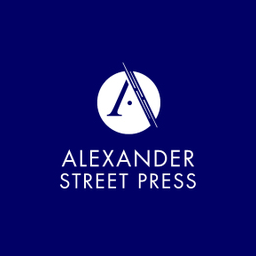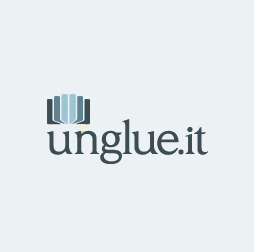Publishers & Libraries
There are six companies which have dominated the publishing industry over recent years; Hachette, Harper Collins, Macmillan, Penguin, Random House and Simon & Schuster (on July 2013 Random House and Penguin officialy merged companies, previously these companies were collectively referred to as the Big 6). The print titles from these publishers adorn the shelves of public libraries around the world. Within the traditional print book supply chain (encompassing the creator, publisher, distributor, retailer and consumer) public libraries can purchase virtually any title published from a multitude of local and international distributors. Libraries typically receive significant discounts from distributors in recognition of the quantity of material purchased. The print titles purchased are owned by the library and the library has the right to circulate titles for a duration and frequency of their own choosing. The titles can be preserved in accordance with a library’s collection development policy and distributed to other libraries via reciprocal inter-library loan schemes. The library can also choose to sell a print title once the item is no longer in demand or in a suitable condition. For an overview of the legislative framework which governs the operation of a public library and the ‘fair use of material’, please refer to the State Library of New South Wales, Public Libraries Legislation page and the Licensing and Legislation section of the eLending portal.
The emerging digital publishing ecosystem has thus far curtailed many facets of the modus operandi enjoyed by public libraries in the print paradigm. A 2013 survey undertaken by the American Library Association’s Digital Content and Libraries Working Group indicated that only half of the Amazon top 20 titles are available to US libraries for eLending. The limited access by public libraries to commercially available eBook inventories is governed by a host of embargoes enforced by publishers.
At present the distribution of eBook titles to public libraries is restricted by publishers to a limited number of eBook aggregators. The publishers stipulate the legal terms and conditions of use to the eBook aggregators and they then sublicense the content to a public library, often with further clauses. The primary licence condition of the publishers is that the eBook aggregator utilises a Digital Rights Management (DRM) solution to ensure the content is secure from unlawful reproduction. The eBook aggregator is also responsible for ensuring that additional usage terms and conditions such as access restrictions (library members only, sometimes prescribed to area of residency), concurrent usage licence arrangements and circulation expiry limits are enforced; e.g. Harper Collins 26 loan cap.
Ebook aggregators typically provide digital titles to libraries under one of the following licence arrangements: perpetual access, subscription or pay per view. Perpetual access to content is usually dependent upon the library maintaining a service provision contact with the aggregator, which requires the payment of annual platform administration fees. In most instances the eBook aggregator also provides the platform to manage the circulation of titles and administer the DRM. This reliance upon the vendor for the provision of a platform is indicative of the fact that the majority of Integrated Library Management Systems (ILMS) simply do not have the necessary functionality to manage the circulation of eBook titles. There is currently little impetus for ILMS vendors to develop this functionality as the major publishers will not sell/lease eBook files directly to libraries to be hosted locally. An alternative strategy is to ensure that third party eBook aggregator platforms can be deeply integrated into the ILMS. There is a push by a coalition of libraries called ReadersFirst (Readers First ) advocating on behalf of their readers that this occurs.
It is not uncommon for publishers to also prescribe library edition pricing for digital titles which is often substantially higher than the regular consumer pricing offered by online stores such as Amazon and Apple for comparable consumer titles. The pricing is set by the publisher and provides little leeway for the eBook aggregator to discount as the profit margins per title are small. The title discounts enjoyed by libraries in the past have virtually disappeared and potential revenue from the sale of digital titles no longer required has been curtailed by the shift to leasing business models. Some publishers also place a six month embargo on the sale of new release titles for eLending purposes (refer to Penguin). This creates unnecessary confusion for library patrons and frustration for library staff who are required to explain why a commercially available new release digital title is not available to library clients.
It is interesting to note that the publisher preference for content to be sold under a licence arrangement is also replicated in general consumer sales. Amazon and Apple both retail content to the public under a limited, non-exclusive, non-transferable, non-sublicensable licence agreement (Amazon & Apple Licence agreements). The major publishers require the commercial retailers to enforce the usage terms and conditions through DRM technology. The DRM effectively controls access to the content to a single account and a limited number of authorised eReading devices. This precludes libraries from purchasing content from the mainstream consumer suppliers because the DRM would prohibit the transference of the content onto a third party platform. To do so would also be a breach of the licence agreement.
There are a variety of reason why some publishers have decided to withhold digital content for eLending purposes and why other publishers have chosen to participate in eLending initiatives, be it with onerous terms and conditions. Primarily publishers are concerned about the impact eLending will have on sales and by extension the profitability of their businesses. They are particularly interested in avoiding the rampant piracy that afflicted the music industry in the early 1990s. Their insistence that eBooks be wrapped in DRM technology is a reaction to their fear of piracy. Another concern of publishers is the potential ease with which eBooks can be lent by libraries. Publishers are wary that if the process of lending an eBook is too easy then this may erode sales. An eBook file unlike a print book can be read by many users simultaneously. To counter this concern some publishers have discussed the need to create ‘friction’ in the eLending experience in libraries to encourage individuals to continue to purchase eBook titles.
Macmillan’s Alison Lazarus, “we want to insure that customers who have typically been books buyers do not migrate their purchasing into borrowing as accessibility to our books becomes frictionless.” (Library Journal 2012)
Over the past 18 months publishers have grappled with devising an economically sustainable eLending business model, frequently changing their policies. Various partnerships have been formed between publishers, libraries and eBook aggregators to trial elending models. The following section provides an overview of the current stance of the Big 5 publishers regarding eLending in public libraries.
updated July 2013
Further Reading:
IFLA E-Lending Background PaperIFLA E-Lending Background Paper http://www.ifla.org/news/ifla-releases-background-paper-on-e-lending
E-Books in Libraries A briefing document developed in preparation for a workshop on E-lending in Libraries. http://papers.ssrn.com/sol3/papers.cfm?abstract_id=2111396
Polanka, Sue (ed.). 2012 No Shelf Required 2: Use and Management of Electronic Books. American Library Association, Chicago.
Google Books
The Google Books project is an undertaking by Google to digitise millions of books from around the world (20 million scanned thus far). Google has…
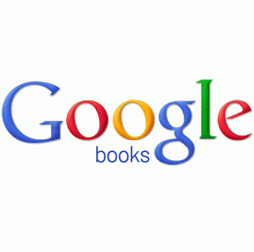
The Internet Archive
“The Internet Archive is a 501(c)(3) non-profit that was founded to build an Internet library.…
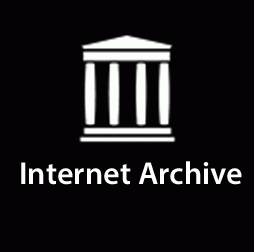
Project Gutenberg
“Project Gutenberg is the first and largest single collection of free electronic books, or…
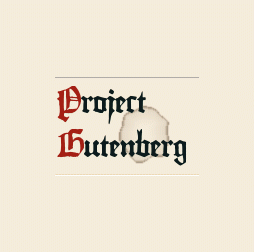
Digital Public Library of America
The Digital Public Library of America aims to unify access to the disparate digital collections…
